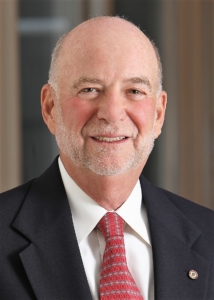 Welcome to COMPSAC 2020
Welcome to COMPSAC 2020
Sorel Reisman, Standing Committee Chair
It is my responsibility, as Standing Committee Chair, to welcome conference participants to COMPSAC 2020. Considering that this year’s COMPSAC is unique and unlike any previous one, where do I start? After much soul searching, I have decided to explain how we came to make our 2020 event an ‘unconference’ conference. That is, we decided that almost all author submissions would be treated as they have in the past, but without presentations and without physical, on-location conferencing events. I am reluctant to label 2020 a “virtual” conference because all or most virtual conference sessions stream online, in real time or prerecorded. But more about that later. Here’s how we came to create what might be called, 2020 COMPSAU – the Computers, Applications, and Software Unconference.
In February 2020, everything was fine and on schedule; many COMPSAC papers had been received and allocated by the volunteer committees to reviewers; many new ones were being received daily. At the beginning of the month, with no thoughts about viruses, we were making plans to hold our annual, two-day Program Committee (PC) meeting in Toronto later in March. The PC meeting is where conference organizers make final acceptance/rejection decisions about long and short papers, select best papers, confer about submissions for the other formats (i.e. workshops, posters, etc.), and discuss session formats and different policies for the July conference. However, within a few days, news about the virus, first in Wuhan and soon in other parts of the world was starting to make headlines. And those headlines were alarming. In the next few weeks we began receiving emails from our international team of conference organizers about their institutions’ travel alerts, that they were going to be prohibited from traveling to Toronto for the PC meeting. By the end of February, so many were unable to travel that we decided to conduct the PC meeting via Zoom. At that time, we also started to consider alternatives for the conference should the virus become a pandemic.
At the beginning of March, we were completing negotiations and being asked to sign agreements with Madrid locales that we were planning to use for the hotels, reception, banquet, etc., some requiring non-refundable deposits. On March 11, the World Health Organization declared the virus outbreak to be a pandemic. It was clear then, from the reports of renowned, international scientists that the virus was not going to be gone by July. As scientists ourselves, we decided that we had no choice but to assume that the viability of the July meeting was at best problematic and that we needed to reconsider our plans.
We were faced with a quandary. Canceling the conference, which was one possibility, seemed to us to be unfair to the hundreds of authors who had written/submitted articles for our consideration. It would also negate the hundreds of hours of review time already expended by our volunteer reviewers. So how could we complete the reviews, send out acceptance letters, and at the same time provide authors with a definitive decision regarding the location of the July meeting? We didn’t want authors whose papers were accepted to immediately buy airplane tickets for a venue that might not take place as planned. At the same time, while many other conferences, scheduled for April, May, and June were canceling their venues; few, if any conversations were taking place among other conference organizers about “virtualizing” their conferences. Discussions focused on canceling or delaying scheduled events. We decided, at the beginning of April, before sending notification letters, that the only fair thing to do was to cancel the physical venue and tell authors about that in their letters. At the same time, we decided to maintain our paper submission schedule, and to process and review papers as they arrived. Our goal was to ensure that COMPSAC continue its history of producing high quality proceedings for inclusion in IEEE Xplore. A break in that annual series could affect the ranking and rating of subsequent COMPSAC conferences.
So, we decided to cancel the physical event, to continue the review process, and to produce a peer reviewed conference proceedings. After all, at the end of the day, after a conference is over, publication of the papers in the proceedings in the Computer Society Digital Library (CSDL) and IEEE Xplore are mostly what remains as the legacy of a conference and the work of the authors. Keynote speakers, welcomes, banquets, etc., are rarely archived in our digital libraries.
Having made this decision, we also agreed to pass on to authors the benefit of our reduced costs for operating the reconfigured conference. While some seem to think that there should be negligible costs to organize a conference in this way, in fact that is simply not the case. There are sunk costs incurred in planning, announcing, and promoting a conference, even if it’s canceled. As well, at the same time, planning for the next year’s conference must also already be underway, also incurring costs. While we weren’t sure at the end of March what our operating costs would be – none of us had been in this situation before – we decided that an almost 50% cut in registration fees would be reasonable considering that authors of accepted papers would not have to incur all the costs of travel to/from Madrid – saving them a significant amount of money and time.
One of the key issues that arose among conference organizers was whether to require authors of accepted papers to submit “recorded” versions of their presentations to accompany their papers. Most of our senior volunteers and reviewers felt that unless we were prepared to review those presentations to ensure that their content aligned with their papers, we should not make that an author requirement. As well, at the time, it was not clear whether our various information systems (e.g., CSDL, Xplore, etc.) were suitable and adaptable to allow for collection, archiving, and playback of such presentations. We also weren’t sure what specifications, in terms of file types and sizes would be appropriate for such data. IEEE’s policies regarding copyrights and the hosting of these additional kinds of media were not clear to us. Bear in mind that we were among the first to have to consider such issues. Since then, IEEE and the Computer Society have provided guidance to conference organizers later facing similar decisions, and fortunately for those following us, much more specific guidance is now available.
Another important issue that the committee discussed was how do we somehow offer registrants the ability to “meet” with each other and to interact with authors of the papers. After all, one of the benefits of attending a conference such as COMPSAC is to provide attendees the opportunity to “network” with other attendees. How might we do that in an “unconference” format. There are a variety of possible discussion forums available to address that requirement, including IEEE’s own Collabratec, but for various reasons that solution was ruled out. As of this writing, we are experimenting with a handful of options to address the networking requirement.
Finally, because the Computer Society eventually defined and developed methodologies for virtualizing different parts of conferences, late in the Spring we were able to take advantage of their work and organize daily, live, plenary sessions during the planned conference days – July 14, 15, and 16. We are grateful to the plenary session chairs (Dejan Milojicic, Kathy Grise, and John Walz) and their panel members for agreeing to participate in those sessions.
As we start to consider COMPSAC 2021, we have decided that if the virus has subsided and the world has returned to normal, we will hold the conference in Madrid, from July 12-16, 2021. We intend to “clone” our original plans with the same team and in the same venue as 2020, but with a completely new conference theme. So put those dates in your calendar. If matters continue to be, as I said earlier, problematic, there are other models now available for us to consider. It is not out of the question that we will face the same set of decisions next February and March as we did this year. But now we have more options. IEEE and the Computer Society now have systems, policies, and practices that can enable us to have a completely online conference, including author presentations and registrant networking. So, depending on circumstances, we will either be there in Madrid, or we will be online, or both. And I am absolutely delighted that this year’s organizing team, all of whom are listed in the proceedings and on the website, have all agreed to serve again for 2021. And that includes our Madridian chairs Sergio Martin and Manuel Castro. They, together with my friends Edmundo Tovar and Sheikh Iqbal Ahamed, have shown great patience as we worked through this difficult time.
Till next year, please be healthy.
